Question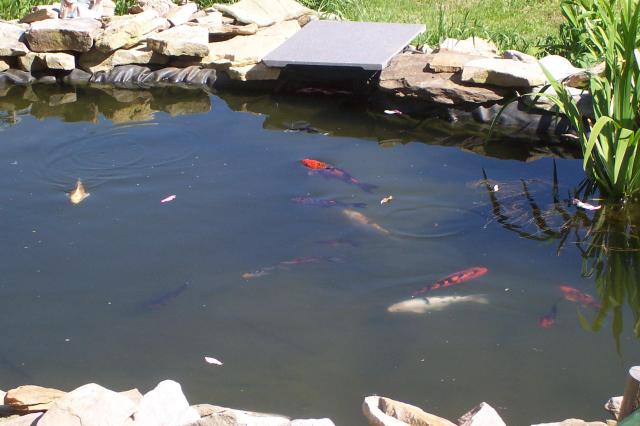 Before the Herons
Before the Herons
QUESTION: My local Pond Store,(and only store in my area), as they change employees, keeps giving me different info for winters. I have had my pond since 2002, it is about 2800 gallons, with a skimmer and a waterfall. A friend built it, and it has the rubber liner, planting shelves, and a deep end, about 3 feet or so. I have lost 3 fish families over the years. The first was my own stupidity, using too much algae-fix and they died. The second was a total loss of electricity in a very bad winter, and no electrician would come out,thus pond de icer was unable to run, pond froze solid and they died. Last spring, all my fish but one disappeared, and I was at a loss, till I saw one of my largest Koi with spear like holes in it. HERONS!!! They had never taken my fish before, and I guess it was due to my cat laying at the pond all day long. He has since passed on. So now I net my pond which sure takes the joy out of it, but I digress. The pond "experts" told me to remove my pump and filters in the winter and use a pond de icer to keep a hole in the ice for gasses to escape. I did this for a couple years, till a friend who builds ponds came over to help with some minor repairs told me he keeps his pumps running all winter, "running water doesn't freeze" just removes his bio cubes, filters etc. and he has large beautiful koi. Then the pond "experts" had on their displays gorgeous plants growing out of their waterfalls, said it would keep the water clearer and healthier, so they sold me that fiasco.Yep, the water looked wonderful... The stuff grew clear to the bottom of my waterfall bin and all through my filters and cubes and I had a mess to clean out and throw away. And of course, had to buy all new filter medium. last fall, I mentioned to the "experts" that I (and my friend) have been leaving our pumps in and running, and they scared me to death with "your fish will all die!!" ( they hadn't for the past 3 years)They said running water in the ice and snowy winters here in Ohio is "colder than still water and will kill the fish". They hadn't yet, but they worried me with that remark and sold me a combo floating or submersible pond de icer that cycles on and off with the temperature changes. So this past season I took their advice and removed the pump and used this gadget. Well, we had the WORST winter here, with huge snow and ice storms. I had submersed this thing, and as soon as I could shovel and brush 4 feet of snow off my pond, I did. I had ice, but could not tell how deep or if this thing was working. I did find a soft spot in the ice and carefully made a hole, just in case they were alive. I watched and waited, and it all is finally gone, and my fish seem fine, I even have babies, and the frogs are courting. So, in your opinion, can I safely (maybe I just got lucky) leave the pump running in the winter, or should I do as the "experts" suggest and shut it down?? I am a 55 year old woman, and I try to do all my pond maintenance myself to cut down on costs, but it is strenuous at times. I am "considering" at least a partial water change due to murky, smelly water, and algae. Our fall rapidly turned into a bad winter with no chance to do my normal fall maintenance. I have been working at removing debris and dead plant stalks, and wonder if I should go for the 1/2 water change or just start using the bacteria enzyme stuff and hope for the best? The algae is not real bad yet, but we went from winter to 80 degrees with no spring weather or rains yet. Also, would this "barley straw" be helpful instead of changing the water? And where would I find it if I want to use it? and HOW do I use it? The last time I completely cleaned the pond was 3 years ago,it was a full emptying and scrubbing down. I don't think I have the energy for that again, and my daughter won't go near the stinky muck. Plus my helpful friend passed on, too....Please advise in any way you can. I love my pond but I sure can't afford much more of those "experts" and I am getting too old to do it all myself, so some energy saving tips would be nice. Thank you for listening.
Sherri
ANSWER: Winters are a hard time to deal with ponds in general. I always recommend leaving the pumps on during the winter. My direct reasoning behind this is that there are tons of beneficial bacteria in your biological filter. Leaving the pump on allows these bacteria access to the pond's water. They can serve their function, and you might even keep them alive the whole winter if it isn't too harsh. There's really nothing more you can do when there's 4' of snow on the ground. You are doing very well to remove dead plant matter, etc. Partial water changes are great, but you need to be careful not to disrupt what little biological activity is hanging on from last season. If you can, check your alkalinity and nitrate. This will help you determine whether the water change is necessary or if you can wait until later in the season to start water changes. I wouldn't do 50% in either case. The scrubdown helps the pond look pretty again, but has very few benefits to the fish and other pondlife. All that barley does is absorb excess nutrients from the water before algae can take advantage of them as a food source. In this vein, it is one of the best, non-intrusive, non-risky algae treatments there is. However it ONLY effective on algae growth and not other non-algal water clarity issues. The microbe-lift spring enzyme is awesome, it helps quickly decay any leaves at the bottom of the pond. You can get anything you want on the internet now. Brigette, another expert on this site, actually runs an online pond supply company. In conclusion, winters can be harsh on your pond. Sometimes, you may even need to start over the next spring, although hopefully not too often. Your job right now is to make sure that the nitrogen cycle starts back up as soon as possible, and that any toxins that would inhibit this process are remover immediately from the water. Keep in mind that once the nitrogen cycle has begun, the work is not yet over. You need to see the introduction and then the disappearance of nitrite after about 3 weeks. Hopefully this last part made some sense. If not, it's quite alright, but I would suggest reading an article about aquariums/ponds and the nitrogen cycle. p.s. Stop buying stuff from that store. I used to work for a local supplier, and they really just want to sell each customer at least one thing every time they walk into the store. It's a sales goal at some stores unfortunately. The safest way to handle it is to know exactly the demands of your pond, then don't buy anything that doesn't directly assist in your pondcare plan. I, on the other hand, treat my ponds as an amateur chemistry lab. That's what is fun for me, but not for others. See if you can find the store's owner, he probably would love to help you without trying to sell you everything in the store. Also, when dealing with these fish store employees, remember that you are probably more experienced with pond care than the majority of them. They will often fail to think past one fact to properly assist you. Example: Yes, the fact about cold air and winters may be true, but in his advice, he told you to take the biological filter out of the system, and that's poor advice. Next time you are not sure if what they're selling is what you need, just ask me.
---------- FOLLOW-UP ----------
QUESTION: Thank you so much for your help AND timely response. I will do the reading on the nitrogen cycle, I would like to possibly add some barley bales, but am at a loss as to where to find them, so I don't contaminate the water with the wrong stuff. I believe I read on this site somewhere thei should be anchored half in and half out of the water? I just don't want the algae to get a head start.
AnswerI've seen bales, solid chunks, and liquid extract.
By nature, liquid extracts work the best. The drawbacks are that it is more expensive and less "set & forget" than the other forms.
The bales will eventually sink and the straw will deteriorate, escapeing into the water. If you use bales, try to locate ones that are refillable (not disposable) as this will work out much better than the disposable version.
The solid chunks (almost like a dog food) work the best in my opinion. They dissolve in the water and don't cause a mess. They are second only to a well maintained bale.
I've found that the internet is the best resource for pond-owners' specific needs. Even though they aren't local, most of them are still small-time entrepeneurs. I have had only a few negative experiences shopping online, and most of them were mistakes that were quickly resolved. Good luck.


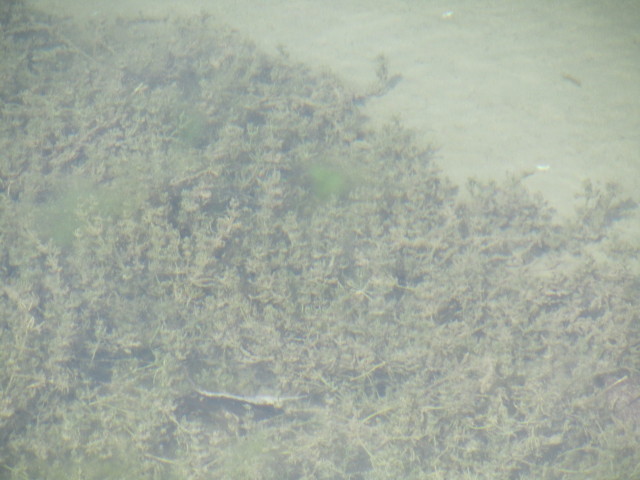 Pond Weeds
Question
Pond Weeds
Can yout ell me what kind of weed t
Pond Weeds
Question
Pond Weeds
Can yout ell me what kind of weed t
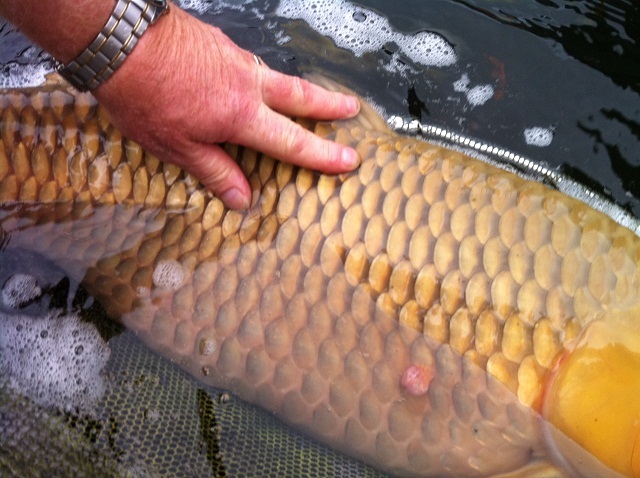 koi health
Question
koi
hi one of my large chargoi has a la
koi health
Question
koi
hi one of my large chargoi has a la
 harsh winters
QuestionBefore the Herons
QUESTION: My local Pon
harsh winters
QuestionBefore the Herons
QUESTION: My local Pon
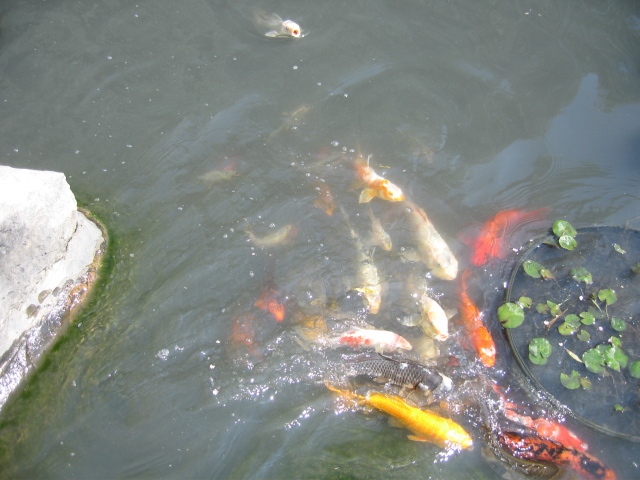 BLACK POND
Question
POND
I RECENTLY TURNED MY ULTRAVIOLET LIGHTS B
BLACK POND
Question
POND
I RECENTLY TURNED MY ULTRAVIOLET LIGHTS B
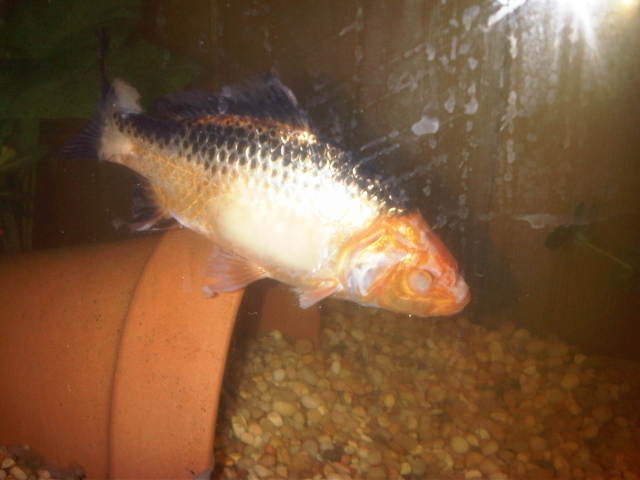 female fish sloughing skin
Question
My sick fish
Hi Brigitte, Thank you for your a
female fish sloughing skin
Question
My sick fish
Hi Brigitte, Thank you for your a